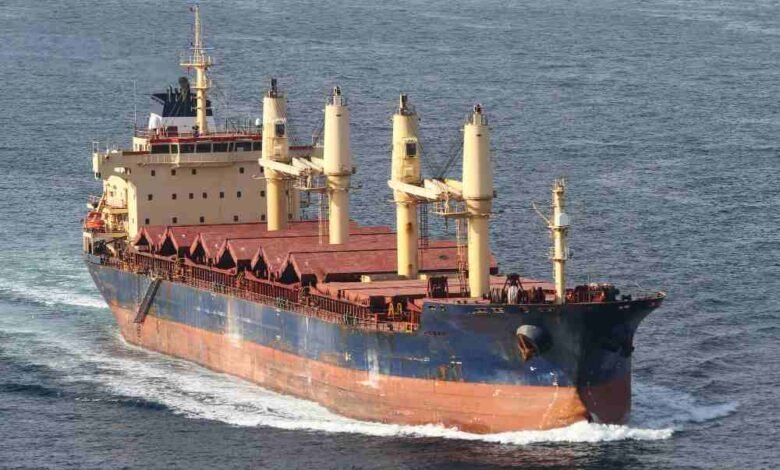The Importance of a Good Captain in Ensuring Efficient Bulk Carrier Operations

In the maritime industry, the captain of a bulk carrier plays a pivotal role in ensuring the vessel’s operations are both efficient and safe. While technological advancements and regulatory compliance are critical components of bulk carrier operations, the human element embodied by a skilled and experienced captain remains irreplaceable. This article explores why having a good captain is essential for the efficient functioning of a bulk carrier.
Leadership and Decision Making
A good captain is at the helm of decision-making processes on a bulk carrier. From the moment the ship leaves port until it docks at its destination, the captain’s decisions affect all aspects of the journey, including fuel consumption, route optimization, and adherence to schedules. Effective leaders are adept at making timely and informed decisions, often under challenging conditions. Their ability to weigh various factors and choose the best course of action can significantly enhance operational efficiency.
Navigational Expertise
Navigational skills are a crucial part of a captain’s responsibility. Bulk carriers, due to their size and the weight of their cargo, require careful navigation to ensure safe and efficient passage. A good captain is knowledgeable about the latest navigation technologies and techniques, which can help in route planning and avoiding areas with adverse weather conditions or high traffic congestion. Efficient navigation minimizes fuel consumption and reduces voyage time, contributing to overall operational efficiency.
Crew Management
The captain is also responsible for managing the crew, ensuring that everyone aboard performs their duties effectively. A well-managed crew is vital for the smooth operation of the vessel. By fostering a positive working environment, addressing concerns promptly, and ensuring appropriate training, a captain can maintain high morale and productivity levels among the crew. Efficient crew performance directly impacts maintenance routines, cargo handling, and emergency response, all of which are essential for the vessel’s operational efficiency.
Safety Protocols and Emergency Handling
Safety is paramount in maritime operations, and the captain plays a crucial role in enforcing safety protocols. A good captain ensures that all safety measures are in place and that the crew is well-versed in emergency procedures. Effective handling of emergencies, such as mechanical failures, adverse weather, or medical issues, can prevent minor issues from escalating into major problems that disrupt operations and cause delays.
Regulatory Compliance
Compliance with international maritime regulations is mandatory for bulk carriers. The captain’s role includes ensuring that the vessel adheres to all relevant regulations, from emissions standards to safety protocols and cargo handling procedures. Regulatory compliance is not only crucial for avoiding penalties but also for maintaining the efficiency and reputation of the shipping company. A knowledgeable captain ensures that all these aspects are meticulously managed, leading to smoother and more efficient operations.
Technological Integration
While technology continues to advance, the captain’s role in integrating and effectively utilizing these advancements is critical. Modern bulk carriers are equipped with a range of advanced technologies, from automated navigation systems to digital twins for operational analysis. A good captain understands how to leverage these technologies to enhance operational efficiency. This includes using data analytics for optimizing routes, fuel management systems for reducing consumption, and automated maintenance alerts for proactive equipment handling.
Voyage Planning
Effective voyage planning is another key area where the captain’s expertise makes a significant difference. Comprehensive planning involves selecting the most efficient routes, considering weather forecasts, and coordinating with port authorities for timely arrivals and departures. A well-planned voyage minimizes delays and reduces fuel consumption, leading to cost savings and improved efficiency. The captain’s ability to foresee potential challenges and plan accordingly is indispensable to the successful execution of a voyage.
Environmental Stewardship
Sustainability is increasingly important in the maritime industry, and bulk carriers are under pressure to reduce their environmental impact. A good captain promotes environmental stewardship by implementing green practices on board, such as optimizing speed to reduce fuel consumption and ensuring proper waste disposal. By aligning the vessel’s operations with environmental regulations and sustainability goals, the captain contributes to the overall efficiency and reputation of the shipping company.
Communication Skills
Effective communication is vital for efficient bulk carrier operations. The captain must communicate clearly and effectively with the crew, port authorities, and the shipping company’s management. Good communication ensures that everyone is on the same page, reducing the likelihood of misunderstandings and errors. It also facilitates quick decision-making and efficient handling of any issues that arise during the voyage.
Experience and Continuous Improvement
Experience is a valuable asset for a captain. A seasoned captain draws on past experiences to navigate complex situations and anticipate potential challenges. Moreover, a good captain is committed to continuous improvement, staying updated with industry trends, new technologies, and regulatory changes. This commitment to lifelong learning ensures that the captain can continually enhance the efficiency and safety of bulk carrier operations.
Conclusion
In conclusion, the role of a good captain is indispensable for the efficient functioning of a bulk carrier. From leadership and decision-making to navigational expertise and regulatory compliance, the captain’s contributions are pivotal in ensuring smooth and efficient operations. Technological advancements may continue to transform the maritime industry, but the human element – exemplified by a skilled and experienced captain – remains a cornerstone of operational efficiency. By fostering strong leadership, effective crew management, and a commitment to safety and continuous improvement, a good captain not only enhances operational efficiency but also contributes to the broader objectives of sustainability and profitability within the maritime sector.
